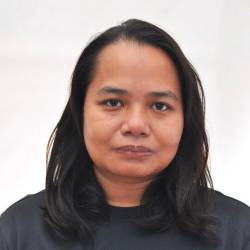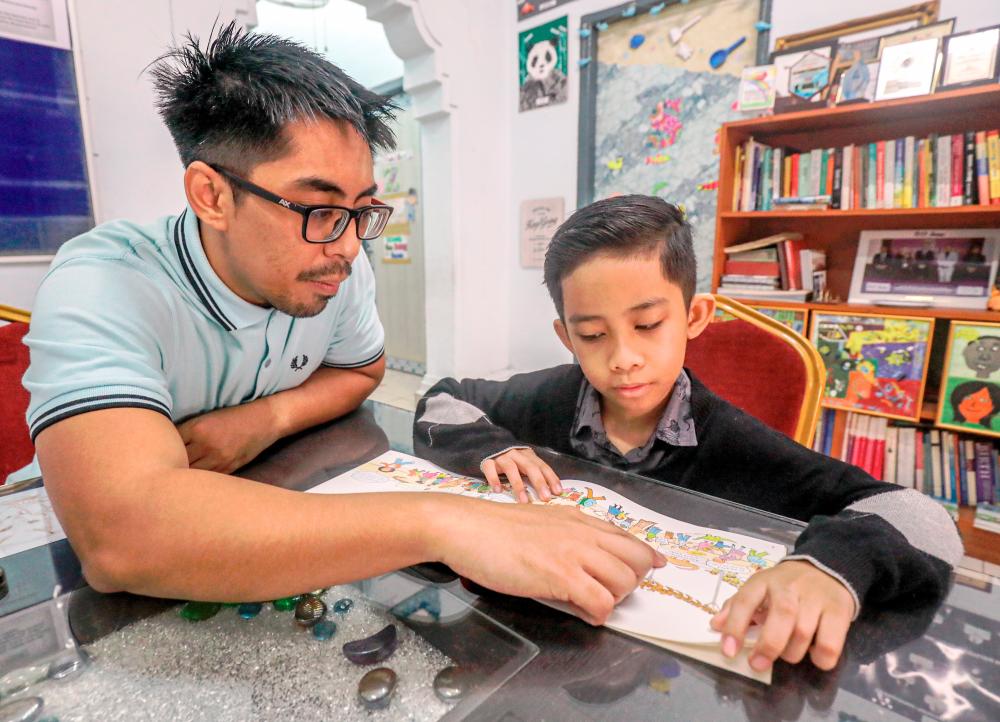PETALING JAYA: When Ishiak Mikael Maato Abdullah Syakirin’s parents noticed their son was writing the letters “p” and “q”, and the numbers “2” and “3” in reverse, they were alarmed.
That was back in 2020 when the seven-year-old’s “mirror writing” had them confused and worried about his future.
Ishiak was already having speech problems by then and spoke in short bursts of words. Fortunately for him, his parents had decided to seek help.
After tests by two medical professionals, Ishiak was diagnosed as dyslexic, which is a learning disorder that causes difficulty in reading due to problems in identifying speech sounds and learning how they relate to letters and words.
He was also diagnosed as having attention deficit disorder, dysgraphia and dyscalculia, which mean difficulty in writing and understanding simple arithmetic concepts respectively.
“It cost me more than RM1,000 for his tests, but it just had to be done. It’s a necessity to read, write and count,” Ishiak’s father, Abdullah Syakirin Mohamad told theSun.
From then on, Syakirin and his wife prepared themselves for the challenges ahead.
They realised that bringing up a child with special needs means that learning for him would be different.
Ishiak was placed in a special class for a year, where he worked on extending his attention span and arranging consonants and vowels, among others.
He would spend 30 minutes each day online instead of in class due to the lockdown. Gradually, he became a happier boy and was often excited about his next class.
Ishiak, who is now nine years old, has even created his own method of dividing numbers.
“He didn’t understand the concept of division. So, to teach him what is four divided by two, I’d take four of his Lego bricks and separate them into two different groups.
“He has since simplified this process. He imagines the number of circles and divides them in his head. He can do this up to 100. Beyond that, he would start to get slightly confused (as the numbers get larger to be divided),” Syakirin said.
He admits there were times when Ishiak felt he was an under-achiever. But that lasted for a year.
“It is sad to hear him say that he is not as smart as other children or see him frustrated with his lessons.
“It reminded me of my situation when I was a boy as I only started to speak at the age of six. I stuttered and was bullied by other kids. I was very quiet. It was thanks to my mother that I always scored high marks. She taught me to read and stressed the importance of education at an early age.
“I want Ishiak to know that he has dyslexia and that it should not affect his self-esteem or confidence,” he said, adding that children like Ishiak are strong in arts and crafts.
His son can read music notes and memorise his favourite piano tunes.
He also enjoys helping his mother cook and wants to be a chef one day.
Syakirin, who is also Dyslexia Malaysia Association vice-president, wants parents to understand that dyslexic children can be helped in their development so that they can be on par with other children.
“I hope the stigma of parents, who are ashamed of their dyslexic children, will be eradicated because they are just deficient in terms of learning and it is not their fault.
“If they are helped at an early stage, then their performance will be better. It has also been proven that a person with dyslexia has extraordinary skills and intellect.”











